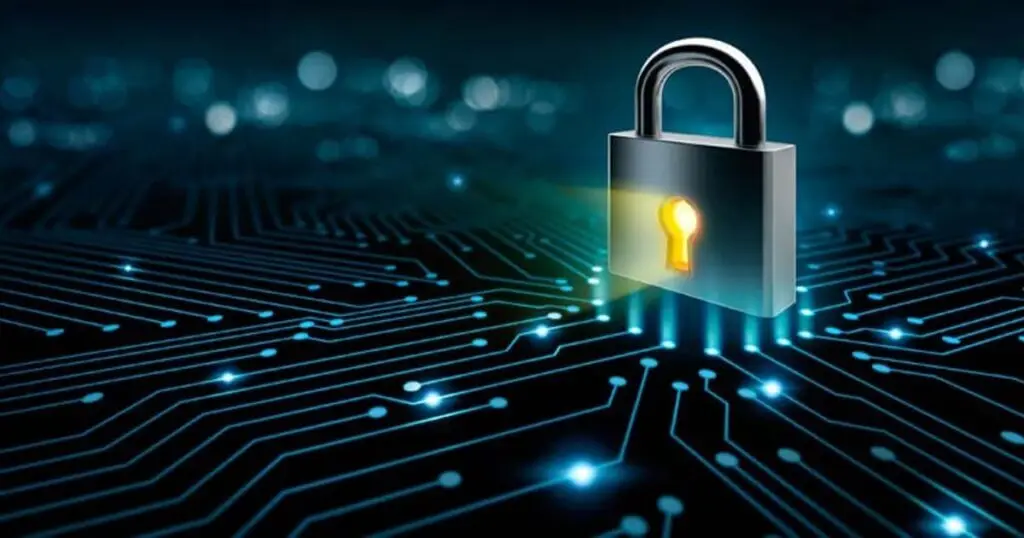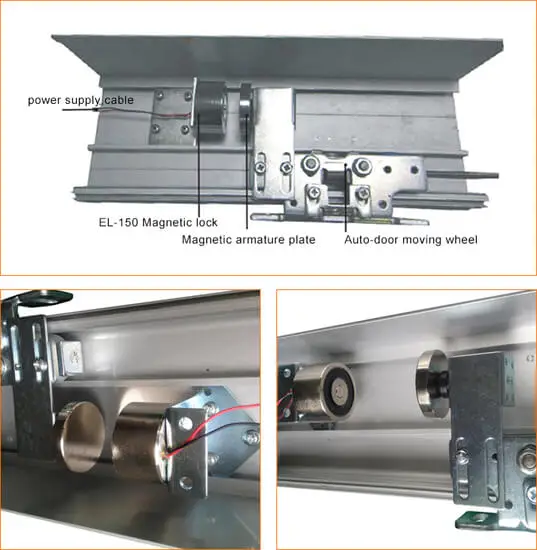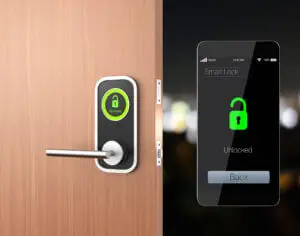In recent years, smart locks have become increasingly popular as a way to increase home security. With the convenience of being able to lock and unlock your doors remotely or through an app, it’s no surprise that many consumers are turning to smart locks for peace of mind.
However, with any new technology comes concerns about privacy and data security. In this article, we’ll explore some common smart lock privacy and data security concerns.
How Do Smart Locks Work?
Before diving into the concerns surrounding smart door locks
, it’s important to understand how they work. Smart locks are similar in appearance to traditional deadbolts but come equipped with additional features such as Wi-Fi connectivity or Bluetooth technology. These features allow you to control your lock from anywhere using a smartphone app or internet-connected device.
There are typically two types of smart locks – those that replace your existing deadbolt and those that attach to your current hardware. Installation procedures vary depending on the type of smart lock you choose.
Smart Lock Privacy Concerns
One major concern when it comes to August smart locks is privacy. Many people wonder whether their personal information is safe when using a connected device like a smart lock.
Data Collection
Smart locks collect usage data for various reasons, such as tracking entry history or adjusting settings based on usage patterns. This means that users’ personal information is being stored somewhere in cyberspace which could potentially be hacked or compromised by unauthorized parties, as per California consumer privacy act.
Sharing Information
Additionally, some companies may sell user data without explicit consent, which could lead to invasion of privacy issues for family members who aren’t comfortable with their information being shared like this, unlike traditional locks or physical locks.

Hacking Risk
Another potential issue is hacking risk, where unauthorized third parties take advantage of flaws in the programming code, thereby breaking through security functionalities offered by passwords encryption protocols or communication between smart devices involved in every step of this process, growing resistant, especially under an exponential rise due Internet Of Things (IoT) appliances taking space in households around the world.
Smart Lock Security Concerns
Aside from privacy concerns, smart locks also pose data security risks. These risks may include:
Unauthorized Access
One of the primary concerns is unauthorized access to your home or property. Hackers may attempt to gain access by hacking into your lock or simply stealing your phone, which you use to control the lock remotely.

Fraudulent Activities
Another major concern is fraudulent activities such as theft or identity fraud that take advantage of personal information people share with devices in their homes without following recommended security measures such as password management and firmware updates. Not to mention those who might use the data collected by smart locks to orchestrate predictable break-ins.
Malware and Ransomware
Smart locks can also be vulnerable to malware or ransomware attacks which could lock users out of their own homes. Hackers could exploit vulnerabilities in the software running on these devices or intercept data being exchanged between your lock and connected devices to steal personal information that can put you at risk.
Protection Tips
Fortunately, there are some steps you can take to protect yourself from potential threats posed by smart lock privacy and data security concerns:
Encryption Protocols
Make sure your smart lock uses encryption protocols when communicating with other smart home devices and on-cloud servers, unlike traditional lock. Ensure that these encryption protocols meet contemporary industry standards such as the Advanced Encryption Standard (AES), and end to end encryption for secure communication between IoT appliances – both in transit and at rest moments.
Password Management
Ensure all connected devices are protected with strong passwords inclusive of password policies that restrict characters’ type, length, and complexity.
Ensure also that 2-step verification is enabled where possible across apps associated with management of access control settings for such things as office/unlocks timelines database info (fingerprint scans databases), location sharing services safely transporting important packages, among others whose stakes have become skyrocketed under pandemic restrictions.
Firmware Updates
Regularly update any firmware on your smart lock as they contain improvements or bug fixes aimed towards cybersecurity enhancement purposes as a consequence of penetration test outcomes conducted by DevOps teams.
Those security professionals are hired by manufacturers overseeing the continuous search for new possibilities leading towards bypassing security mechanisms initially designed intending to counter any attempts intruders might make against the device’s functionalities.

Tracking
One concern about smart locks has to do with the potential for tracking. Since these locks often collect data on who is entering and leaving your home and when it happens, there is a possibility that this information could be used by marketers or other third parties without your knowledge.
Think about how this could play out: If a company collects or buys data on people’s movements throughout their day, they could target them with ads or offers based on their interests, behaviors, and patterns. This kind of targeted marketing can feel invasive and unsettling for many consumers.
To mitigate the risks of tracking through smart locks, users should always read the terms of service carefully before buying any connected device and ensure that enough control over personal information will be held after evaluating the potential return on privacy costs from every bit shared online.
Conclusion
Although Smart Locks offer convenience & peace of mind, many people want, ultimately, in modern home construction, it’s important to address the privacy and data security concerns surrounding their use.
As we discussed in this article, storing personal information or connectivity with other IoT appliances, it opens vulnerabilities for hackers who might exploit these weaknesses having drastic consequences for homeowners who depend on the technology as part of their daily routine.
By following best practices like firmware updates, encryption protocols, strong password management, proper firewall protocols setting,& VPNs smart lock, users can take measures that decrease attack surface against them.
With these recommendations implemented, there is no need to worry about being a prime target – Smart locking truly brings increased peace of mind without worries concerning data security and home invasions, unlike its traditional deadbolt counterpart.






